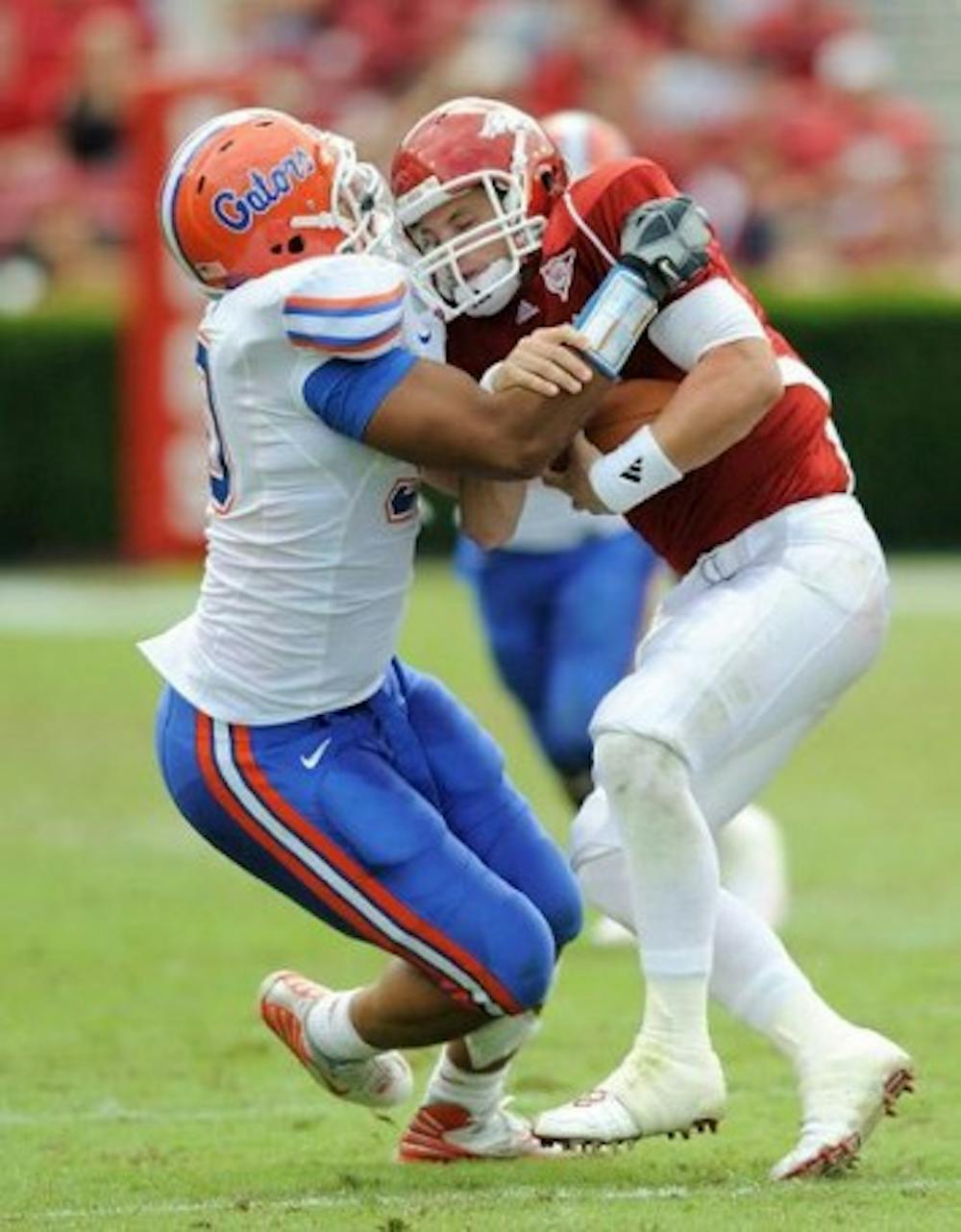It's been one year, and UF still can't forget.
The Gators don't want to forget.
In 2007, UF played well enough to win at LSU, but found itself in the loss column after allowing the Tigers to convert on five fourth downs.
Defensive coordinator Charlie Strong has made sure that his defense doesn't forget what slipped away last year in Baton Rouge and has shown them the film of that game repeatedly as a reminder.
"It's good because you can show it to them and say 'look guys, this cannot happen again," he said. "You're able to throw that game in their face. You're able to throw Georgia in their face and the Michigan game. It's playing in the weight room, it's playing in the locker room, it's playing in the hallway."
Some of the key characters, like quarterback Matt Flynn and running back Jacob Hester, who converted several of those fourth downs, won't be playing Saturday, but the memories of those plays still linger.
The Gators led the entire game until the final minute of the contest when Hester scored a 2-yard touchdown with 1:09 left that gave the Tigers a 28-24 lead and the win.
On Saturday, LSU will depend on hefty 233-pound running back Charles Scott to carry its rushing attack. Scott has already rushed for 535 yards and six touchdowns this season and has topped 100 in all four of the Tigers' games this season.
With redshirt freshman Jarrett Lee starting at quarterback, slowing Scott will be the key to stopping LSU's balanced attack.
"He's a great back," defensive line coach Dan McCarney said. "I mean he is a great back. He was a tremendous player last year, we looked at last year's game and last year's films last season and what a tremendous back he was.
"I don't know how many stingers he's given out this season, but you better get your pads down to tackle him."
The Gators' run defense was stout against Tennessee running back Arian Foster, who like Scott, is a big, physical runner. But UF's rush defense, which was surprisingly effective in the first three games, has been porous in its last two.
The Gators allowed 72.3 rushing yards per game in their first three contests. In its last two contests, UF has allowed an average of 140.5 rushing yards per game against Mississippi and Arkansas, who feature less than dominant rushing attacks.
The Gators know the key to beating LSU is winning the battle in the trenches as LSU sports one of the biggest, most athletic offensive lines in the Southeastern Conference.
"We have to be at our best," McCarney said. "We have to play better defense than we have all year. My defensive line has to play better than we have at this point. If we do that it's going to be a heck of a game. If we don't, they can just wear you out."
For the moment, they are likely just worn out by watching last year's debacle in an endless loop.






